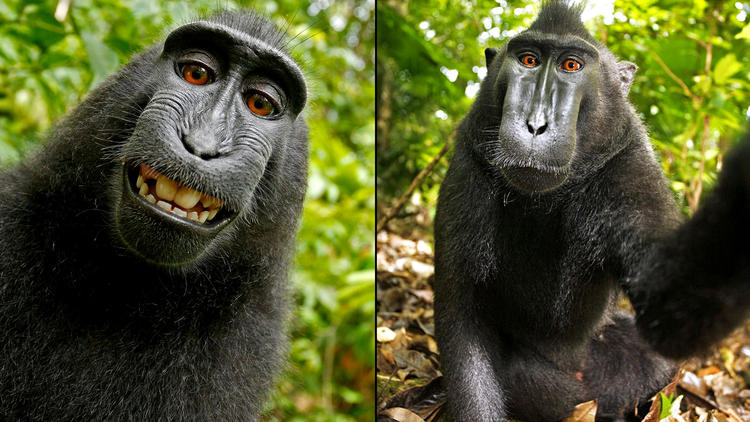The court refused the monkey to copy on their own selfie

Hello again
The story of the Indonesian monkey was continued. It would seem that the problem was solved by the United States Copyright Office in 2014. Not really. People For The Ethical Treatment of Animals (PETA) decided to stand up for the rights of the monkey and acted in its interests in court. PETA representatives tried to prove that it was the monkey who owned the rights to his own selfies, and not the photographer or anyone else.
Let me remind you that the story itself began in 2011, when the photographer David Slater, specializing in wildlife, decided to photograph a rare species of monkeys from Indonesia. The photographer began to install the equipment, but one of the monkeys decided to help the man. Without thinking, the animal stole the camera, and began to press the shutter button again and again. Among the hundreds of photographs obtained there are almost perfect selfies of the animal. The photo was uploaded to Wikimedia Commons, after which the photographer asked to delete this photo, stating its rights to it. Wikimedia representatives (a non-profit organization that serves the work of a dozen wiki projects, including Wikipedia and Wikimedia Commons) refused to delete the photo, indicating that the rights to the selfie photo do not belong to the photographer. The photographer began to challenge this opinion, arguing that he had lost thousands of dollars in "lost profits" as deductions. The photographer even informed the Air Force that the monkey was his assistant.
After detailed consideration of the case, the Copyright Bureau made the following decision: “Works made by nature, animals or plants” cannot be protected by copyright.
')
PETA decided to collect from the photographer and the platform Blurb, where the photographer unloaded the monkey's photos for copyright infringement. According to representatives of this organization, a monkey can really be the owner of the right to their own selfie, so no one else can use the pictures without her, a monkey, permission.
Federal Judge William Orrick (William Orrick) decided not even to consider the case. At the short hearing, he said that it was not within his competence to resolve such issues.
Source: https://habr.com/ru/post/367551/
All Articles